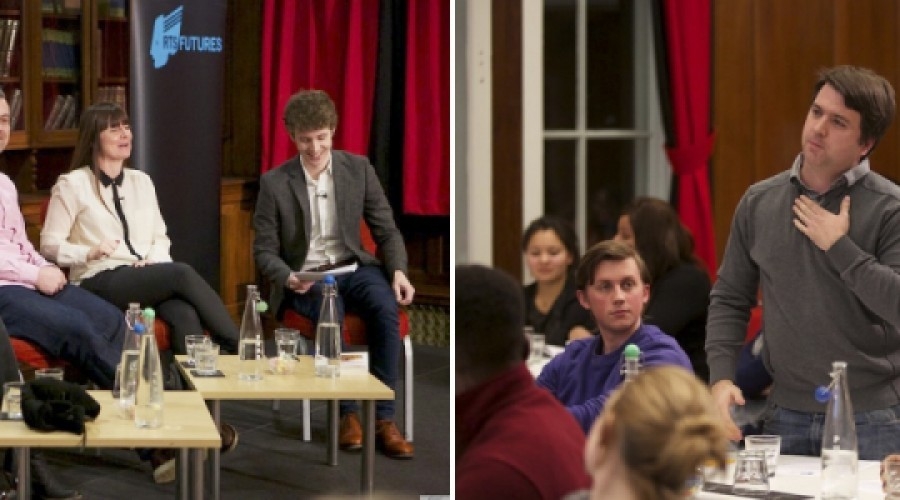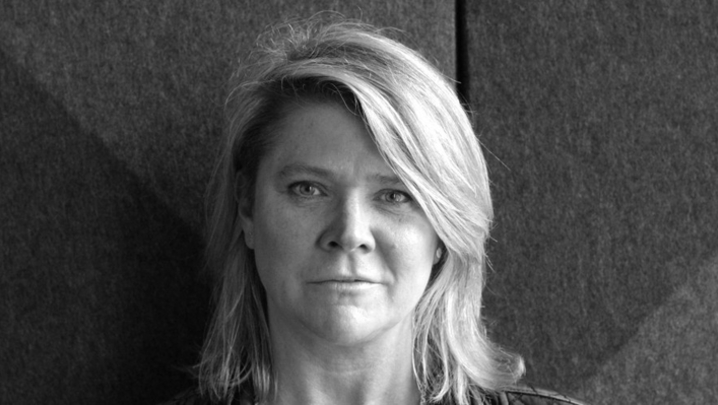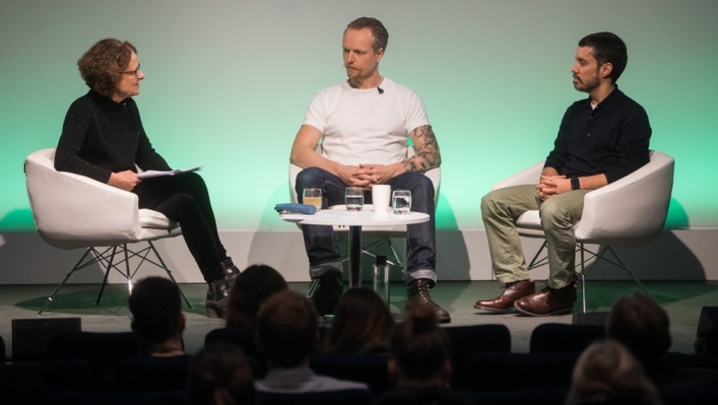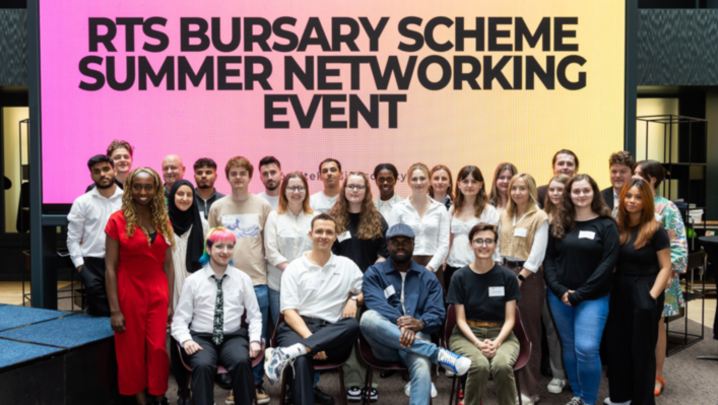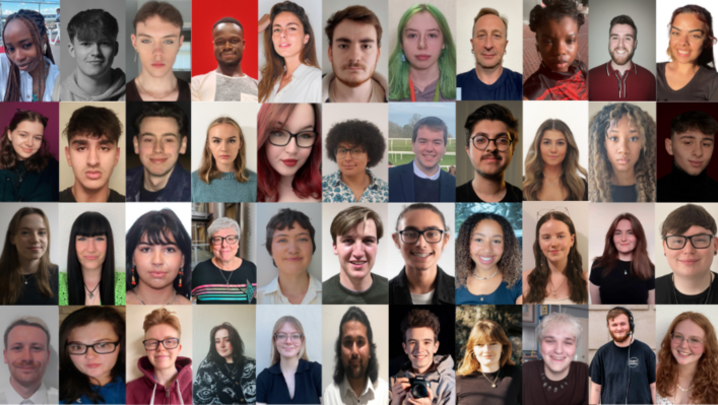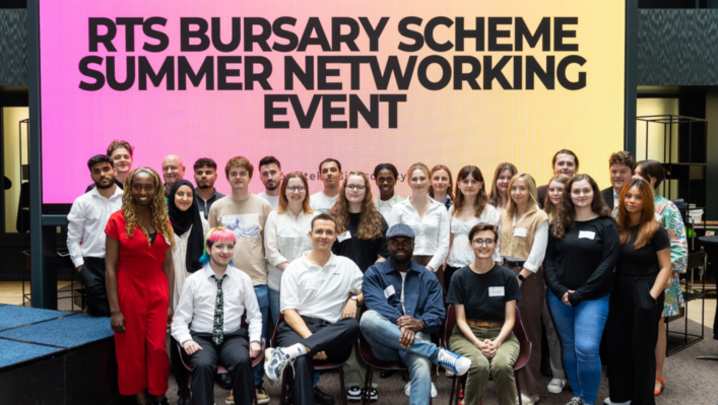Almost everyone who works in TV production started out in the same place: as a TV runner. Three relative newcomers to TV running share their first impressions, tips, insights and experiences of the job.
Charlotte Taylor - Film Production Student, Greenwich University
 In my experience, the key to getting your foot in the door of the TV industry is a combination of luck and hard work. If you’re offered a job, you really have to give it your best even if you're only making tea all day. Being passionate is how to get noticed.
In my experience, the key to getting your foot in the door of the TV industry is a combination of luck and hard work. If you’re offered a job, you really have to give it your best even if you're only making tea all day. Being passionate is how to get noticed.
I first got into TV as an extra on the set of a comedy series. There, I met a member of the production team who was really helpful in getting me work experience with the company producing the show. I started off on expenses only – travel, lunch, etc. - before being offered a paid contract as an office runner.
The duties of an office runner are incredibly varied and I started off making more tea than I thought was physically possible! There were a lot of administrative responsibilities: filing, scanning, photocopying and shredding. I also kept track of the office petty cash and made sure stationery supplies were always in stock. Because I worked hard, and maintained a positive attitude, I was quickly recognised as a dedicated person and given greater responsibilities.
My biggest task was writing compliance notes for several productions. This is done after the edit and before a show is aired on TV. It involves writing down what can’t be part of the final programme, things like swearing, nudity, etc. I was also required to fill out 'Programme as Completed' forms (PasCs), which detail all the legal materials relating to the production, and a cue sheet to log each music track used in production.
From there, I was made a floor runner on the set of a returning TV show. This was incredible fun! Work started at 6.30am for 7 weeks straight, and I was looking after some big talent. For the first time I was locking off locations, signing in supporting artists, directing people through costume changes, and generally keeping an eye on things on set.
Going back to University, I felt more confident about my future in TV. Over Christmas break I was asked back to work as a production runner. This was a much bigger role, reporting to the production coordinator, and I was assisting in all parts of project.
We were shooting in Hartlepool which, for me, meant researching the area for facilities like supermarkets, hardware stores, and stationary shops. Transport and photocopying materials had to be arranged, as well as radio equipment and wifi for the entire crew.
All this experience gave me the kickstart I needed for a career in TV. I am now in the talent pool for two productions companies, I feel confident applying for further work as a runner, and I have a much clearer idea what to expect after graduation.
My advice to other young people looking to get into the TV industry is: take every opportunity you are offered, you never know where it might lead...
Richard Walker - Television Production Student, University of Gloucestershire

Before going to university, I joined a Facebook group called ‘People looking for TV work: Runners’. There, I saw a vacancy for a day runner on a popular reality TV series. After spending a lot of time editing and re-editing my CV (and then re-editing it again), I plucked up the courage and sent off my application. Within two days I had received a brief phone call, sat for a Skype interview and got an email confirming my place. I was thrilled!
The email outlined my tasks for the day and explained that the runners were expected to rotate around three areas: registration, production crew, and looking after the general public. Keen to make a good impression, I was half an hour early on location. There, I met the Production Assistant who was my contact for the whole day. After a quick briefing it was clear that I would be using my initiative to get noticed, and be as productive as possible.
I did everything I could to be useful; tending to the general public and answering their questions, encouraging people to stand in the back to fill out the shot, and making those all important tea and coffee runs. I saw how even the smallest jobs make a difference to the crew, and how grateful they were for having me around.
What took me by surprise was how instantly comfortable I felt. I was worried that I’d get things wrong on the day, or that I wouldn’t know what to do and feel really lost. But actually, I felt right at home which confirmed to me that I was pursuing the right career. In the end, I didn’t have to change roles and remained with my team for the whole day which was great. After all, I’d learnt their drinks order by heart.
Waving goodbye to the crew at the end of a long, hard day was wonderful, even better when I got to sit down at long last on the train home. As I reflected on my first day as a runner, I thought about how I was going to get more experience to put on my CV. To anyone reading this who is thinking about a career in television, I would say that saying ‘yes’ opens far more doors than saying ‘no’.
Tim Mizon - Television Production Student, Bournemouth University
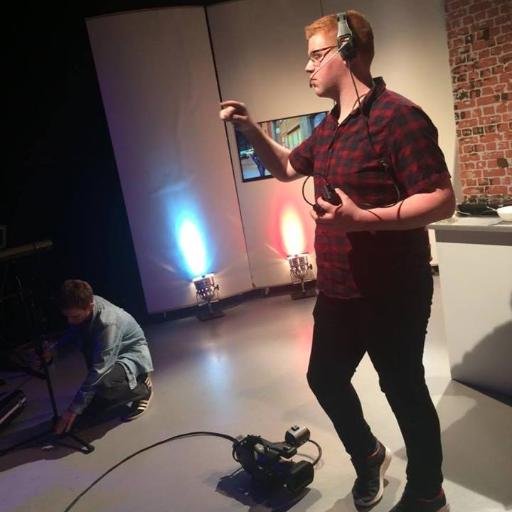 While I was at University doing my Television Production degree, I got some work experience as a runner on a number of television shows, including on one of the popular sports panel shows. My job was to provide food and drink for the crew and generally look after them. Because this was also a work experience placement, I also got to see first hand what goes into making the show.
While I was at University doing my Television Production degree, I got some work experience as a runner on a number of television shows, including on one of the popular sports panel shows. My job was to provide food and drink for the crew and generally look after them. Because this was also a work experience placement, I also got to see first hand what goes into making the show.
The big difference about being an intern or on work experience is that you work with so many different departments and you get involved in lots of different things. I spent time in the gallery watching the director and vision mixer, as well as sitting in with the creative team to see how they contribute to the show.
Working on the programme was a really valuable experience. It reconfirmed my passion for this industry, and I received some really helpful and encouraging feedback.
It also gave me a foot in the door at the company, and I guess I left a good impression on them because I have been offered a paid position on the next series of the same show!
On another show, I acted as a talent runner (responsible for looking after the celebrity guests, and making sure they get to where the need to be on time).
This was another incredible experience. A lot of the time as a talent runner, you will be working alongside different departments like wardrobe and make up. In some cases you may have other departments like games and art where they need to see talent. For me, the best part about progressing to talent runner is liaising with the AFM (Assistant Floor Manager) and gain experience in what their role is as well.
I would definitely recommend being a runner. It is hard work and you should expect a fast-paced day, but it is rewarding, enjoyable, fulfilling and provides the best springboard for future opportunities in TV.


